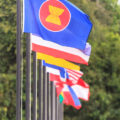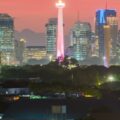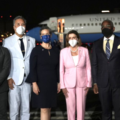Reform the UN Security Council to Reflect the Voices of Developing Countries
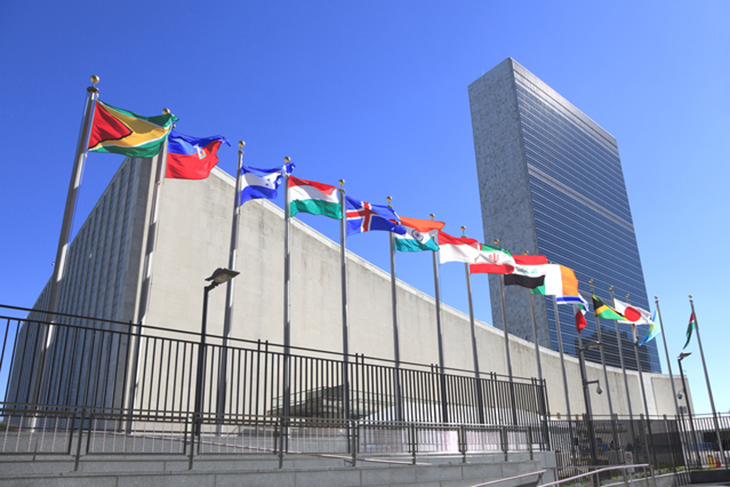
Since the Russian invasion of Ukraine, the UN Security Council is at a deadlock. “I sincerely hope that experts come together and immediately begin to formulate concrete proposals for reform,” says Prof. Kitaoka.
While many emerging and developing countries have criticized Russia’s invasion of Ukraine, they are also unhappy with the sanctions-based diplomacy being led by the United States and Europe. Gathering international opinion, including that of developing countries, and finding a better way forward is the original role of the United Nations. There is no way that such a UN could be dysfunctional. Now is the time for Japan to lead United Nations Security Council reform.
Kitaoka Shinichi, Professor Emeritus, University of Tokyo
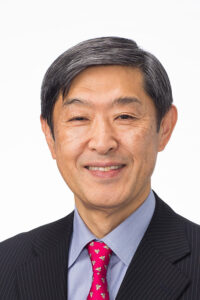
Prof. Kitaoka Shinichi
The Russian invasion of Ukraine which began on February 24, 2022 is the worst violation of international law since World War II. Unsurprisingly, on March 2, 2022 the United Nations General Assembly adopted a draft resolution demanding that Russia immediately end its military operations in Ukraine with an overwhelming majority of 141 in favor, five against and 35 abstentions (and 12 countries non-voting). Next, on March 24, a resolution criticizing the invasion for creating a humanitarian crisis was put to a vote, passing with a nearly identical split of 140 in favor, five against and 38 abstentions (10 countries non-voting). The result was almost the same as for the previous vote.
However, the April 7, 2022 draft resolution to suspend Russia from the Human Rights Council was adopted with 93 votes in favor, 24 opposed, and 58 abstentions (18 non-voting), a decrease of 48 [in favor] from the first resolution. While it is hard to say with certainty because the details of the resolutions differ, 93 member states were in favor of taking strong measures against Russia, while 100 member states (the total of those against, abstaining and non-voting) did not concur. Moreover, considering that the UN Ambassadors of Afghanistan and Myanmar voted in favor, the result was actually 91 in favor and 102 not in favor, as those ambassadors were appointed by the democratically elected but ousted governments and their votes were not recognized by the current regime at home.
When we consolidate the votes for and against this third resolution by region, the results show splits of East Asia at 2-to-3, Southeast Asia at 3-to-8, Southwest Asia at 0-to-7, Australia and New Zealand at 2-to-0, Oceania at 10-to-2, the EU at 27-to-0, non-EU Europe at 13-to-0, Central Asia at 0-to-5, the former Soviet Union at 3 (Ukraine, Georgia, Moldova) to 4, the Middle East at 2-to-13, Africa at 10-to-44, Latin America at 19-to-14, and North America at 2-to-0. In other words, votes in favor of the third resolution were concentrated among developed countries such as Europe, the US, Canada, Australia, New Zealand, Japan, South Korea, and Israel, while the bulk of non-approval votes came from developing countries in Asia, Africa and the Middle East. This clearly suggests a division between developed and developing countries.
US double standards and distrust on the part of developing countries
Not a few developing countries regard the actions of developed countries with distrust.
Russia’s behavior is indeed terrible. However, the United States invaded Iraq in 2003 without an appropriate UN Security Council resolution. The United States’ rationale rested on suspicions Iraq was developing weapons of mass destruction (WMDs), but none ended up being found following the invasion. US Secretary of State Colin Powell, who gave a speech at the United Nations regarding these suspicions, would later describe the false information he delivered as a lifelong regret. Britain’s then Prime Minister Tony Blair, who joined the US in the Iraq War, has also expressed strong regrets. In addition, while US Army Chief of Staff Eric K. Shinseki said that several hundred thousand troops would be needed for the Iraq War to maintain order, Secretary of Defense Donald Rumsfeld claimed that a smaller force would be sufficient, and as a result caused chaos within Iraq and he was later forced to resign. The collapse of the Saddam Hussein government also turned armed extremists into terrorists who spread throughout the Middle East, leading to the formation of an “Islamic State” (IS) and turmoil in Syria.
At the time of the Iraq War, US President George W. Bush loudly proclaimed that the US had turned Germany and Japan into democracies, and could do the same to Iraq. I was truly shocked when I heard this. Both Germany and Japan have long histories of democratization, along with a history of being pro-American, which became the basis of post-war democratization. I don’t believe those same foundations existed in Iraq. Even if President Bush lacked that understanding, were none of those close to him knowledgeable in this area?
I got a similar impression at the start of the Afghanistan War in 2001. Immediately following the 9/11 attacks, President Bush exclaimed that this was an act of war against our country. But the kind of damage inflicted by the 9/11 attacks were happening on a daily basis in Japan and Germany in the last several months of World War II. In the Bombing of Tokyo on March 10, 1945, 100,000 people died in a single night. Atomic bombs were dropped on Hiroshima and Nagasaki in August that year. Similarly in Germany, hundreds of thousands of people are believed to have been killed by aerial bombing. While the 3,000 victims who lost their lives in the 9/11 attacks is tragic, it is nothing compared with what happened in Germany and Japan. And remember this was not war, but an act of international terrorism. A war ends when the other side surrenders. But terrorists don’t surrender. The only way to prevent terrorist attacks is to continue to search for signs of terrorism and exercise vigilance in a patient manner. Terrorism and war should be handled differently.
During the global COVID-19 pandemic that began in 2020, vaccines were first administered in developed countries, with fewer allotted to developing countries and at a slower pace. As the Russo-Ukrainian War has dragged on, many developing countries have been hard hit by sharply rising energy and food prices, and many countries are facing difficulties meeting their debt obligations. This is another area in which developing countries feel increasingly discriminated against.
The United States (as with Europe and Japan) holds the ideals of democracy in high regard. I also believe that democracy (in the sense that Winston Churchill described it) is the best form of government. But in what countries democracy should be established and in what form is quite a difficult question. There are few cases where democracy took root out of the Arab Spring uprisings. In 2021, the Summit for Democracy organized by the US was admirably intentioned, but I don’t think that careful consideration was paid to the selection of countries invited.
Japan among developed countries
Developed countries must respond to the distrust or discontent of developing countries with sincerity. And among these developed countries, Japan is in the best position to respond.
In the early 2000s, there was debate pitting responsibility to protect (R2P) against human security. The former holds that the protection of one’s citizens is a fundamental obligation of the state, but when a state lacks the will or capacity to fulfill that obligation, the international community has a responsibility to protect them. The latter focuses more on the rights of individuals to live with dignity and favors non-coercive and non-interventionist support. Japan has embraced this latter approach.
Additionally, while official development assistance (ODA) provided by Europe and the US is rooted in charity and is often carried out in a condescending manner, Japan’s ODA is characterized by adopting an equal footing with the partner countries, and is characterized by the extensive use of the word “cooperation” rather than “aid” or “assistance.” This approach has been welcomed by many developing countries, and has been recognized and emulated around the world, as illustrated by France’s decision in 2021 to shift away from the use of “aid” and “assistance” in favor of the word “cooperation.”
In December 2021, the Parliament of Uganda unanimously adopted a resolution. The resolution commended the cooperation of the Japan International Cooperation Agency (JICA) and other development agencies in Uganda, but in effect it was praise directed at JICA. JICA received this praise, a somewhat embarrassing accolade from Japan’s perspective, because unlike other countries, our activities are for the betterment of Uganda without any ulterior motives.
Of course, we should not be satisfied or pleased with this; Japan’s ODA is still insufficient in both qualitative and quantitative terms. Japan should respond to the trust of developing countries by continuing with sincere cooperation and even strengthening it. But at the same time, this approach should make a political appeal to the world that Japan will build relationships of trust with developing countries on an equal footing. The place to do that must be the United Nations.
The difficulty in reforming the United Nations Security Council and limiting veto power
Since the Russian invasion of Ukraine, disappointment with the United Nations has spread. It is a great shame that the United Nations cannot do anything while Russia, a permanent member of the United Nations Security Council and a nuclear power, brazenly tramples on the United Nations Charter. But in the first place, the United Nations is powerless. The UN has no military or economic power of its own. Many UN resolutions sanctioning North Korea have been passed, and they still failed to stop the country developing nuclear weapons. And this time it is Russia, a nuclear power and permanent member of the UN Security Council. It is hard to deny that the current Security Council is effectively powerless.
But we must change this status quo. The UN is not an organization that makes and implements decisions; it is a place where international opinion is formed through discussions about what is right, and what is not right. That opinion underpins the authority of the United Nations. But the Security Council is deadlocked, and it must be changed.
One focal point of Security Council reform is how to limit the veto power of permanent members. Recently a resolution tabled by Liechtenstein and supported by other countries was passed. It is to require permanent members who exercise their veto power in the Security Council to explain their reasoning in the General Assembly. The proposal had been discussed for many years and finally went into effect. Even so, Russia has gotten away with explanations of feigned innocence. Limiting veto power is extremely difficult. Although Japanese people don’t seem to be very aware of this, the US would be steadfastly against veto restrictions as well.
Article 27 of the United Nations Charter includes a rule that in certain cases such as when one of the members of the Security Council, including a permanent member, is a party to a dispute, the member must abstain from voting (cannot exercise their veto power). However, permanent members will come up with all sorts of reasons to avoid having to abstain, such as claiming that a matter is not a dispute or conflict but an act of self-defense. Another avenue of reform would be to challenge Russia’s status as a permanent member. While permanent members are listed in Article 23 of the United Nations Charter, this list specifies the “Union of Soviet Socialist Republics” and not the Russian Federation. An objection could be raised against Russia being regarded as the successor state to the Soviet Union. Even so, with so few countries in favor of Russia’s suspension from the Human Rights Council, this would also be a difficult proposition.
Building momentum for reform with a proposal for eight semi-permanent members
Another issue is the composition of the Security Council.
Japan has long called for Security Council reform and expressed its willingness to itself become a permanent member. At one point in 2005 there was a chance, albeit slim, of this happening. The High-Level Panel established by then Secretary General Kofi Annan proposed two models for Security Council reform: Model A, a proposal to establish six new permanent members and three new non-permanent members to form a 24-seat Council, and Model B, a proposal for the creation of eight long-term seats with renewable terms of (at least) four years referred to as semi-permanent members along with one new non-permanent member to form a 24-seat Council.
Japan formed the G4 together with Germany, India and Brazil to draft a resolution based on Model A and submitted it to the United Nations General Assembly. Meanwhile, member states opposed to the creation of new permanent members formed Uniting for Consensus (UFC) and submitted a proposal based on Model B. The G4’s proposal dominated the UFC’s proposal and closed in on 110 votes, close to the 128 votes needed for passage of the resolution, but in the end the resolution was not tabled for a vote and the endeavor ended in failure.
I won’t go into why the effort failed here, suffice to say that currently there exists no appetite for such reform in the United Nations. In the intervening years Japan saw its economic power wane, and its financial contributions to the United Nations at the time of 19.6%, closely rivaling the 22% contributed by the US, have now fallen to 8.0%, giving way to China’s 15.2% contributions and sliding into third place. Since 2005, Japan has consistently advocated the G4 proposal, or insisted on the expansion of both permanent and non-permanent members. If there was a vote to increase the number of permanent members by just one, even now Japan would probably be at the top of the list, but eventually it may relinquish that position to India.
Given this history and the solidarity among the G4, Japan cannot simply reverse the position it has held to date. But the Security Council is on the brink of death over the Ukraine crisis. Citing this as the reason, what if Japan put the G4 proposal on hold and shifted to a proposal based on Model B as an interim measure until fundamental reforms could be implemented in 2045 to mark the 100th anniversary of the United Nations. (Many people experienced in the workings of the UN have already advocated this stance. Kokurenanpori kaikaku wo kangaeru [Thinking about Security Council reform], written and edited by Takeuchi Toshitaka, Shinyo Takahiro, is an excellent reference for this).
That way, Japan could also work together with UFC, and even convincing Africa wouldn’t be impossible. That is because there are no definite candidates for permanent members among African countries, and for many countries, it seems they favor a rotation of members rather than installing certain countries as permanent members.
There are a number of variations to Model B, but if eight seats with renewable terms of four years were created, Japan would probably be selected to a seat two out of every three times, meaning it would have a seat on the Security Council for eight out of every 12 years. At worst, Japan would be elected to a seat once every two terms, allowing it to sit on the Security Council for four in every eight years. Up to now Japan has frequently been selected as a non-permanent member of the Security Council, but in recent years, it has been usual for Japan to be out of the Security Council for five or six years after serving a term. Therefore, the reforms based on Model B would be much better than the present status.
One of the merits of Model B would be the increased participation of leading countries. The current non-permanent members of Security Council for the 2021–2022 term are India, Ireland, Kenya, Mexico and Norway, with Albania, Brazil, Gabon, Ghana and the United Arab Emirates slated for the 2022–2023 term. At the end of 2022 five countries serving in the 2021–2022 term will relinquish their seats on the Council and be replaced with Japan, Switzerland, Malta, Ecuador and Mozambique. Looking at the abovementioned group of countries, undeniably there are several that exhibit a degree of weakness at judging the world’s problems.
If eight semi-permanent members were adopted, countries like Japan, Germany, India and Brazil would be able to take part frequently, and countries like Mexico, Indonesia, South Korea and Australia would also appear on the Council with some regularity. The new Security Council would likely be a similar body that adds several small and mid-sized countries to the G20. But unlike the G20, the members would be able to discuss global political issues on a weekly or even daily basis.
This would be a challenge even for Japan. Traditionally Japan has often considered global political issues in terms of its relationship with the United States first and foremost, or within the context of the G7. But if this reformed system was adopted, greater consideration would have to be given to developing countries. But Japan is a country that is capable of this. In other words, this proposal would be beneficial to Japan and the wider world alike.
At one time, the Kishi Nobusuke administration [1957–1960] sought to strengthen Japan-US relations by revising the Japan-US Security Treaty. Prime Minister Kishi visited South Asia and Southeast Asia before and after a visit to the United States [in June 1957], and advocated three principles for Japan’s foreign policy, namely United Nations-centered diplomacy, maintenance of Japan’s position as a member of Asia, and cooperation with liberal countries. Nakasone Yasuhiro, who contributed to further fortifying Japan-US relations, had from an early stage focused on nationalism in Asia and elsewhere, and even as Prime Minister [1982-87] sought to strengthen ties with China and South Korea. Ultimately, a Japan that earns the trust of developing countries will also contribute to improved Japan-US ties.
The Ukraine issue is a global crisis, but crises can also be perfect opportunities for reform. This is a chance for Security Council reform. Prime Minister Kishida Fumio has already made an appeal to the world concerning Security Council reform, stating at the United Nations General Assembly in September 2022 that “The time has come to start text-based negotiations to reform the Security Council.” I sincerely hope that experts come together and immediately begin to formulate concrete proposals for reform.
Translated from “Sausu no koe wo taigensuru Kokuren-kaikaku wo (Reform the United Nations to Give a Voice to the Global South),” Gaiko (Diplomacy), Vol. 75 May/Jun. 2022, pp. 18-23. (Courtesy of Toshi Shuppan) [February 2023]
Keywords
- Kitaoka Shinichi
- Reform
- United Nations
- Security Council
- Russian invasion of Ukraine
- Iraq War
- 9/11 attacks
- ODA
- JICA
- United Nations Charter
- Kofi Annan
- semi-permanent members
- Model A
- Model B
- G4
- Uniting for Consensus
